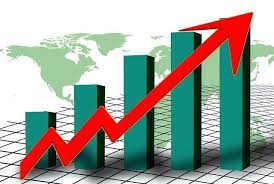Nigeria’s Inflation Rate Hits 20.8%, Highest in 17 Years
The effects of the soaring food process and supply chain disruptions have further worsened the Nigerian economic system as the inflation rate has just jumped to 20.8%, its highest figure in 17 years....

The effects of the soaring food process and supply chain disruptions have further worsened the Nigerian economic system as the inflation rate has just jumped to 20.8%, its highest figure in 17 years.
The food inflation rate, on the other hand, also recorded a surge from 23.12% recorded in the previous month to hit 23.34% on a year-on-year basis.

This figure which has steadily been rising in the last seven months has been seen to be the after-effects of supply chain disruptions caused by the recent widespread flooding and higher import costs.
The NBS has also linked the worsening figures to an increase in prices of bread and cereals, food products, potatoes, yam and other tubers, oil and fat.
Since 2016, inflation in Nigeria has recorded double digits which is a result of the weakening of the naira currency.
When compared to the 16.63 percent recorded in September 2021, the current inflation rate is 4.14 percent higher, a figure which confirms an increase (year-on-year) in September 2022.
When comparing the inflation rate on a month-on-month basis, the headline inflation rate in September 2022 was 1.36 percent indicating a 0.41 percent decrease from the figure recorded in August 2022 (1.77 percent).
There was a noticeable percentage increment when the average CPI for the twelve-month period ending September 2022, was compared with the average CPI for the previous twelve-month period.
The average CPI for the last 12 months ending September 2022 was 17.43 percent indicating a 0.60 percent increase from the same period in 2021 which stood at16.83 percent.
The urban inflation rate was also measured on a year-on-year basis for the month of September 2022. At 21.25 percent, the urban inflation rate was 4.06 percent higher when compared to the figure recorded in September 2021 (17.19 percent).
On a month-on-month basis, the urban inflation rate was noticed to decline by 0.34 percent when compared to the figure recorded in the previous month.









No Comment! Be the first one.